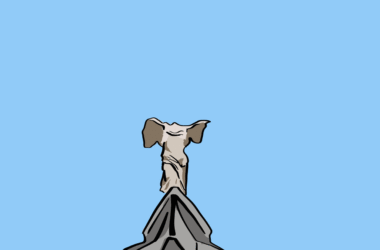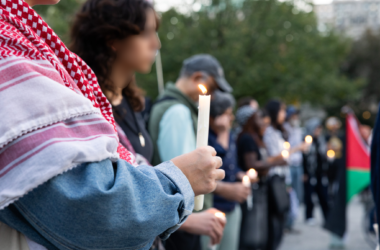
President Zach Newburgh started the year strong, acting as the ever-present public face of the movement to re-open the Architecture Café. Shouting through a megaphone outside of Leacock prior to the September McGill Senate meeting, Newburgh presided over one of the most significant and coordinated displays of student engagement and mobilization McGill has seen in recent memory. Although the café was never re-opened, the campaign did lead to the creation of Student Consultation and Communication Work Group. While the ultimate outcome of this group remains to be seen, it at least represents some progress in administration-student relations.
Newburgh also collaborated with Vice-President Internal Tom Fabian to organize SSMU’s first substantial Homekoming celebration this fall, and the two are already working on next year’s event. Although the weekend was not as well attended as anticipated, these types of thing typically take a few years to get going, and we’re hopeful the event will only grow in the coming years. Newburgh also worked hard to increase the president’s visibility, allowing any undergrad to schedule a meeting with him using Tungle, an online appointment-booking application.
Significantly, Newburgh initiated a much needed effort to eliminate the hopelessly flawed General Assembly. Although he was criticized for not sufficiently consulting students during the process, and the motion he authored was ultimately unsuccessful, he succeeded in initiating a long-awaited conversation which we hope will eventually lead to major reforms to or the abolition of the GA.
But most of Newburgh’s successes will be forgotten, as much of the second half of his presidency has been overshadowed the Jobbook debacle. In signing a confidentiality agreement last fall, and using his SSMU email for personal dealings, Newburgh exercised poor judgment in many instances. This continued after the matter came to light, as Newburgh only answered questions he deemed sufficiently “nice” at the question-and-answer period he held. Although it appears Newburgh did not actually violate SSMU’s Conflict of Interest policy, his handling of the entire situation left many questions unanswered and many students feeling alienated. In addition, the debacle hopelessly splintered the Executive Committee, meaning Newburgh failed in one of the most important duties of the presidential office: leadership.
Newburgh’s revisions to the Conflict on Interest policy may help to prevent such a situation from arising in the future, but Jobbook will define how many students remember his tenure as president.





